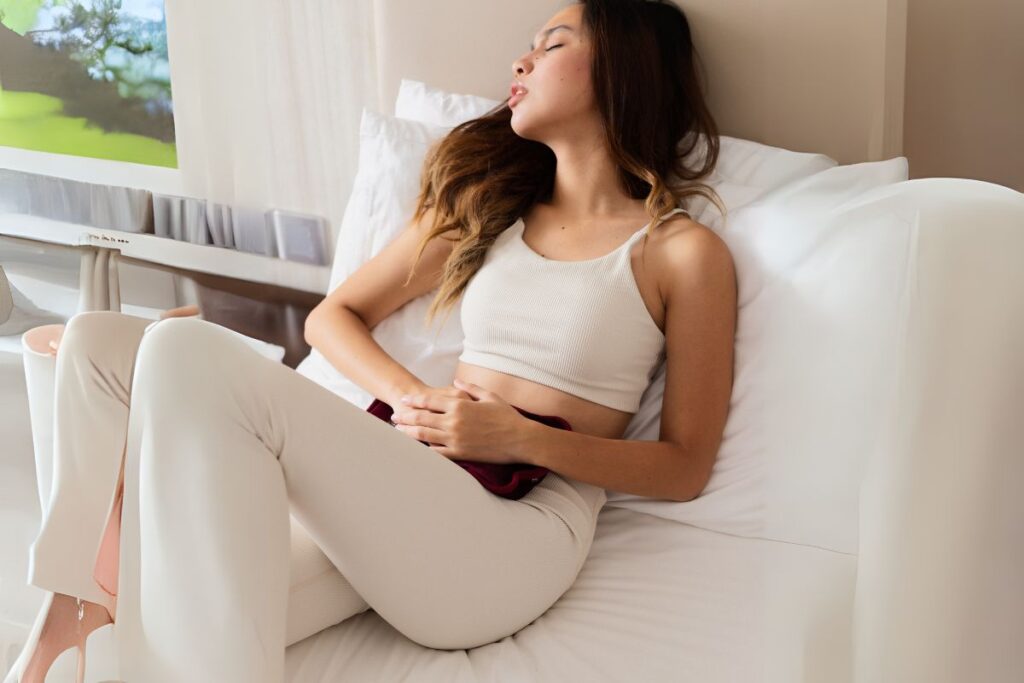Do you find yourself curled up in pain every month, dreading the arrival of your period due to painful cramps? Dysmenorrhea, or period cramps, affects many women and can disrupt daily life. But the good news is, there are many ways to alleviate this common condition. In this article, we will discuss why period cramps happen, the best ways to relieve the pain, and when to seek medical attention for more severe cases.
What Causes Period Cramps?
Period pains happen as the muscles in the uterus contract to release the lining. During menstruation, the hormone prostaglandin increases and triggers these contractions. The higher the prostaglandin levels, the more intense the cramps may be. Cramps typically last for 1-2 days at the beginning of a woman’s period.
Symptoms of Period Cramps:
● Lower abdominal pain: A dull, throbbing pain that can range from mild to severe.
● Back pain: Some women also experience pain in the lower back.
● Nausea: Prostaglandins can trigger nausea, especially when cramps are severe.
● Headaches: Hormonal changes during menstruation can lead to headaches or migraines.
Treatment for Period Cramps:
● Over-the-counter pain relievers: Nonsteroidal anti-inflammatory drugs (NSAIDs), such as ibuprofen, can reduce inflammation and alleviate cramps.
● Heat therapy: You can ease pain and relax muscles by placing a heating pad on your back or lower abdomen.
● Exercise: Because regular exercise increases blood flow to the pelvic area, it can help reduce the intensity of cramps.
● Diet: Eating anti-inflammatory foods like omega-3-rich fish, leafy greens, and ginger can help alleviate cramps.
● Hormonal Birth Control: Birth control pills or IUDs can reduce the intensity of period cramps by controlling hormone levels.
Myths About Period Cramps:
1. Myth: “Period cramps are just something you have to deal with.”
● Truth: While cramps are common, they don’t have to interfere with your daily life. Effective treatments are available to reduce pain.
2. Myth: “Painful periods are always a sign of endometriosis.”
● Truth: Period cramps are normal for many women. However, severe pain that lasts longer than usual may be a sign of an underlying condition like endometriosis or fibroids.
3. Myth: “Period cramps go away after childbirth.”
● Truth: Some women experience relief from cramps after childbirth, but this isn’t the case for everyone. Period cramps can persist into adulthood.
FAQ
How can I relieve severe period cramps naturally?
You can try heat therapy, gentle massage, and taking anti-inflammatory teas like ginger or chamomile.
Should I see a doctor for period cramps?
It’s a good idea to see a doctor to rule out underlying illnesses if your cramps are severe or interfere with your everyday activities.
Is it normal to have cramps for the entire duration of my period?
While some discomfort is quite normal during periods, you should see a doctor if your cramps are severe and last for several days.
Can lifestyle changes help reduce period cramps?
Yes, regular exercise, a balanced diet, and stress management techniques like yoga can help reduce the severity of cramps.
Disclaimer:
This article is for educational purposes only. Please consult a physician for a personalised diagnosis and treatment plan.

